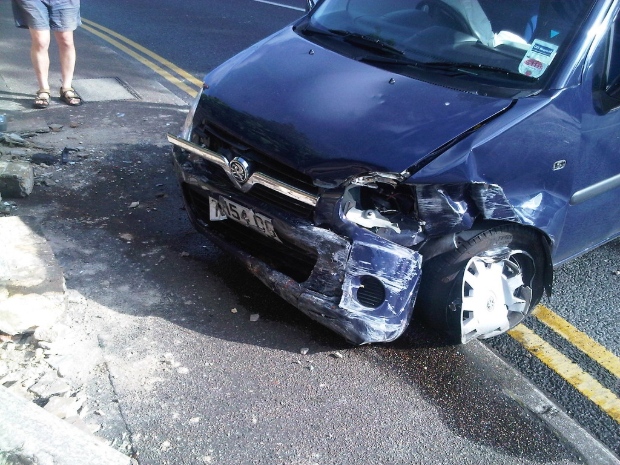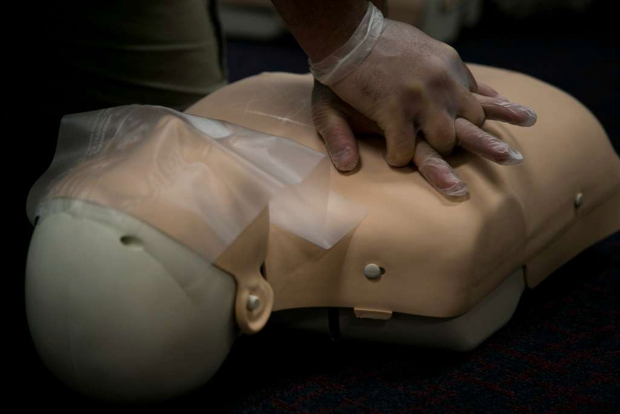(Representational Image above courtesy Wikimedia Commons)
On an early November morning in New Delhi, last year, a man lay unconscious after a road accident, his life hanging by a thread. As bystanders hesitated, frozen by fear and uncertainty, Satish Kumari, a traffic head constable with Delhi Police acted swiftly. Ignoring bureaucratic boundaries, she stopped her vehicle, performed CPR, and transported the injured man to the hospital within minutes.
Her timely intervention saved a life — a powerful reminder of the importance of the “golden hour” in road accidents.
This story is not just about a heroic act; it underscores a larger truth. Every year, over 1.5 lakh lives are lost on Indian roads, many of them preventable if victims received prompt medical attention. The golden hour — the first 60 minutes following an accident — is crucial, and timely action, often by ordinary bystanders, can mean the difference between life and death.

“During a collision, something irreparable happens in the patient’s body, which requires quick medical care to curb complications. This ensures the highest chances of survival based on the intensity,” shares Dr Jerard Christopher, a general practitioner in Chennai.
The role of a bystander in such situations cannot be overstated.
So, what can a bystander do?
- Check for responsiveness: The first thing a bystander needs to do is to check for the individual’s vital signs. “Check if the patient is able to talk and answer the questions asked; If not, make efforts to move them to the nearby medical care,” shares Dr Jerard.
- Administer CPR: One of the most crucial things a bystander needs to do is to perform cardiopulmonary resuscitation (CPR) on the individual, if unresponsive. “CPR ensures the brain gets enough oxygen; every bystander is obliged to perform this simple, yet lifesaving procedure,” Dr Jerard points out.

- Ensure safety: As much as saving the individual’s life is important, one needs to ensure that they are not risking their life during this process. “If the scene is dangerous, drag or move the individual to a safer side in order to provide the most effective and timely help,” says Dr Jerard.
- Call for help: Calling emergency services immediately, and providing accurate details about the location and condition of the victim, can bring in quick help to save the life. “Get help from other bystanders as well and help the individual in need,” Dr Jerard says.
Notably, the Indian Government, under the Good Samaritan Law, recognises people who save the lives of road accident victims with a cash reward of Rs 5,000 and a certificate of appreciation.
By stepping in during the golden hour, bystanders can become life-savers, turning tragedy into triumph. Road Safety Month, being celebrated this January serves as a reminder of our collective responsibility to act swiftly and compassionately.
Edited by Arunava Banerjee
No comments:
Post a Comment